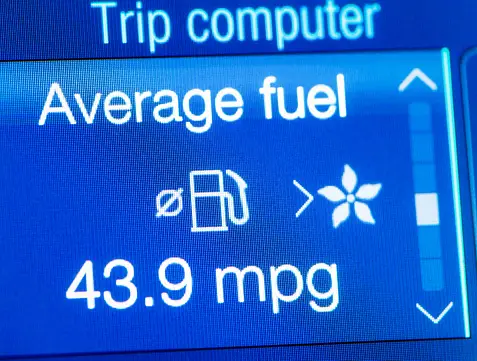Understanding Average MPG: A Guide for Car Owners
In today’s world, where sustainability and efficiency are paramount, understanding your car’s average miles per gallon (MPG) is essential. Whether you’re a seasoned driver or a novice, optimizing your vehicle’s fuel efficiency not only saves you money but also reduces your carbon footprint. In this article, we’ll delve into the world of average MPG for cars, providing you with a wealth of information, tips, and FAQs to help you make informed decisions about your vehicle’s fuel consumption.
Average MPG for Cars: The Basics
Your car’s average MPG is a measure of its fuel efficiency, representing the number of miles it can travel on a gallon of fuel. Higher MPG values indicate better fuel efficiency, meaning you can drive more miles with less gasoline. This metric is crucial for both environmental and economic reasons, as it affects your pocket and the planet.
Why Does Average MPG Matter?
Understanding the significance of average MPG is the first step toward making conscious choices about your vehicle and driving habits. Here’s why it matters:
Cost Savings: A more fuel-efficient car translates to lower fuel expenses, putting extra money in your pocket.
Environmental Impact: Reducing fuel consumption means fewer greenhouse gas emissions, contributing to a cleaner environment.
Long-Term Reliability: Fuel-efficient cars tend to have less wear and tear on their engines, potentially extending their lifespan.
Resale Value: Fuel-efficient cars often have higher resale values, making them a wise investment.
Factors Influencing Average MPG
Several factors affect a car’s MPG, and it’s essential to consider them when evaluating or purchasing a vehicle. Let’s explore these factors:
- Vehicle Type and Size
The type and size of your vehicle play a significant role in determining its MPG. Smaller, lighter cars generally have better fuel efficiency than larger, heavier ones.
- Engine Type
The engine type matters. Diesel engines typically have higher MPG than gasoline engines, but advancements in gasoline engine technology have narrowed the gap.
- Driving Habits
Your driving habits also impact MPG. Aggressive driving with rapid acceleration and frequent braking consumes more fuel than smooth, steady driving.
- Maintenance
Regular vehicle maintenance, including air filter changes, tire rotations, and oil changes, can significantly affect MPG.
- Aerodynamics
Aerodynamic features like roof racks or cargo carriers can decrease MPG due to increased wind resistance.
Tips for Improving Average MPG
Now that you understand the factors influencing average MPG, here are some tips to enhance your car’s fuel efficiency:
- Choose a Fuel-Efficient Vehicle
When purchasing a car, research and select models known for their high MPG ratings.
- Maintain Your Vehicle
Regularly service your car to keep it in optimal condition. This includes changing air filters, maintaining tire pressure, and using the right oil.
- Drive Smart
Practice fuel-efficient driving techniques like gentle acceleration, coasting, and avoiding excessive idling.
- Minimize Extra Weight
Remove unnecessary items from your car to reduce weight and improve MPG.
- Plan Efficient Routes
Plan your trips to minimize stops, avoid traffic, and choose routes with lower speed limits when possible.
FAQs about Average MPG for Cars
What is the average MPG for cars in the United States?
The average MPG for cars in the U.S. varies by year and model but typically falls between 20 and 30 MPG for combined city and highway driving.
Are electric cars more fuel-efficient than traditional gasoline cars?
Yes, electric cars are generally more fuel-efficient as they convert a higher percentage of energy from the grid to power at the wheels, resulting in a lower cost per mile.
Can I improve my car’s MPG by using premium gasoline?
Using premium gasoline may not significantly improve your car’s MPG unless your vehicle specifically requires it. Check your owner’s manual for guidance.
Is it better to turn off my car’s engine when idling or let it run?
In most cases, it’s better to turn off your car’s engine if you’ll be idling for more than a minute. Idling consumes fuel without moving the vehicle.
Do hybrid cars have better MPG than traditional cars?
Yes, hybrid cars generally have better MPG due to their ability to switch between gasoline and electric power, optimizing fuel consumption.
What is the best speed for maximizing fuel efficiency on the highway?
The ideal speed for maximizing fuel efficiency on the highway is typically between 45 and 65 miles per hour, depending on your vehicle.
Conclusion
Understanding and optimizing your car’s average MPG is a smart and environmentally responsible choice. By implementing the tips mentioned in this guide, you can not only save money but also reduce your carbon footprint. Make informed decisions about your vehicle and driving habits, and you’ll be well on your way to a more fuel-efficient future.


